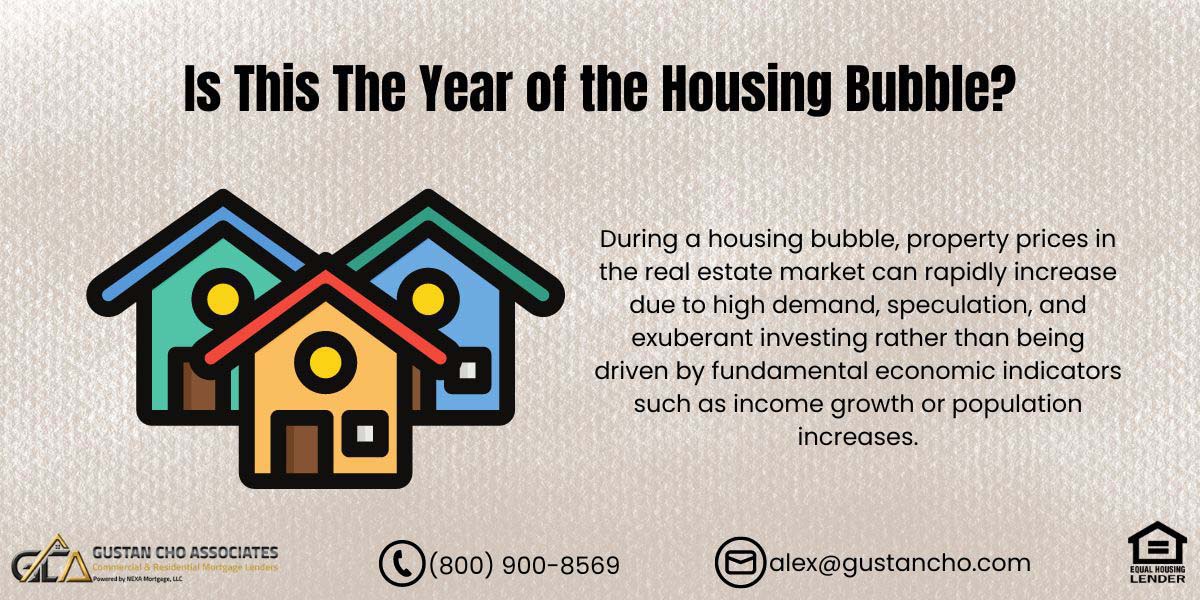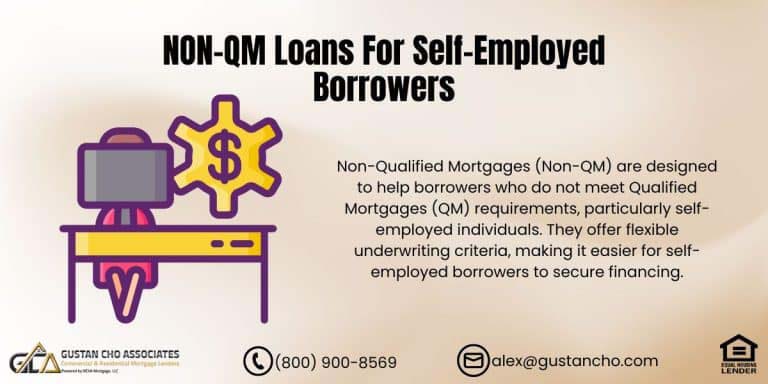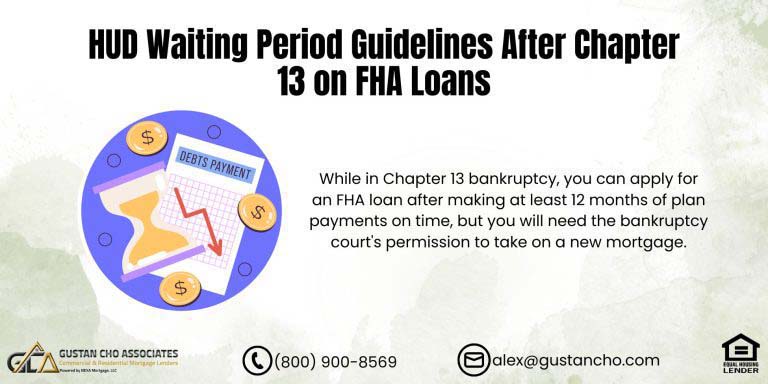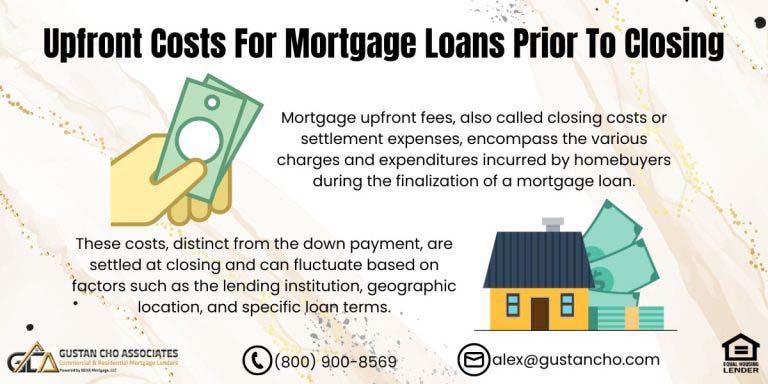Is a housing bubble developing in the US? Will home prices drop soon? 2023 has been a crazy year for the housing market. Homes prices in 2021 and 2022 has skyrocketed to all time highs in most of the nation. Some home values have gone up as much as 40% but has tapered off in mid 2023. Homebuyers were buying homes over 10% to 30% higher than list price because of historic rates as low as 2.0%, thus artificially inflating home prices.
2023 has been a historic year for the housing and financial markets. Interest rates have gone from 2.0% to 7%. Inflation has skyrocketed. Wages has not come close to matching the surging inflation bomb.
To add to the economic disaster, homes were in demand due to homeowners not selling homes because of the low rates they financed and overpriced home values. 2023 was the year thousands of loan officers left the mortgage industry due to high rates, skyrocketing home prices, out of control inflation, and a volatile secondary mortgage market. Many would be homebuyers were forced out of the housing market where buying a house was no longer affordable.
What is a Housing Bubble?
A housing bubble is a period in the real estate market characterized by rapidly increasing property prices, driven by high demand, speculation, and exuberant investing rather than by underlying economic fundamentals like increases in income or population growth. The prices during a bubble often rise at an unsustainable rate, making housing less affordable for many people.
A housing bubble burst typically leads to a sharp fall in property prices, resulting in financial losses for homeowners and investors. This can also have broader economic impacts, potentially leading to recessions, as was seen in the 2008 worldwide financial crisis, which was sparked by the bursting of the U.S. housing bubble.
Worried About a Housing Bubble? Get the Facts Before You Buy or Sell
Understand what’s really happening in the market—and how it affects you.
What Are The Characteristics of a Housing Bubble
Key characteristics of a housing bubble include speculative buying. Investors buy properties expecting their value to continue to rise, which can often lead to a frenzy of buying. High demand and low supply of housing is another key characteristic of a housing bubble.
There is often a significant demand for homes, but insufficient supply increases prices. Lenders may offer more loans to borrowers who might not typically qualify, which can inflate the bubble further as more people can purchase homes. There is a general belief that the market will continue to perform well, which can cloud judgment and lead to overinvestment.
Housing Market Forecast
What normally goes up fast usually comes done. In the case in real estate, it is called a housing correction. So are we going to see a housing bubble in the months ahead? Will 2024 be the year of a housing market correction or housing bubble? In this article we will discuss the following:
- Will home prices keep on going up?
- Historically, what goes up normally comes down.
- Home prices have been skyrocketing in the past several years without a correction.
- Is a housing bubble in the future?
Many homebuyers have been sitting on the sidelines for many months. Some have been sitting on the sidelines for years. We will keep our viewers updated on this breaking news series. Home prices have peaked in 2022 in many major cities to historic highs. Homebuyers were buying homes 10%, 20%, 30% or higher than asking price.
Home prices have stabilized and in many sections of the country, experts are expecting a major housing correction. Countless economists and housing experts are expecting a housing bubble in 2024 into 2025. In the following paragraphs, we will cover a housing bubble forecast coming in the near short term.
How the Coronavirus Outbreak Affected the Housing Market
As we emerge from the COVID pandemic, housing markets in much of the country are going little bananas. We have seen record levels of appreciation and that’s causing concern about the stability of the housing sector. No one wants a repeat of the 2008 housing crisis — should we be concerned? In this blog, we will detail current housing market trends as well as where we think the housing market is headed.
Is There a Housing Bubble?
In much of the country, home inventory were very low and demand for homes is high in 2021 and 2022 when home prices were at its peak. That was very frustrating for buyers, especially first-timers trying to compete with cash buyers and other investors. Will this hot market last, or will it burst like a fragile bubble, leaving those who paid top dollar holding the bag?
Homebuilders and Experts Worried About Housing Bubble
Many experts agree that home prices accelerating at this pace could be worrisome. Doug Duncan, the chief economist at Fannie Mae has acknowledged concerns about the stability of the housing market and said:
I must say a housing bubble in the coming months or short term is not out of the question. I must admit that big run-ups in home prices have been a recipe for disaster in the past. But is that what’s happening here?
Real estate prices historically increase at 4% to 5% annually on average. But they don’t do this steadily every year. Instead, prices can spike, fall, stagnate, correct, and bounce. What goes up often comes down. and vice versa. It’s not uncommon for hard-hit areas one year to make huge gains the next, or for hot markets to correct themselves. If this runup corrects itself gradually, it won’t damage the economy.
Experts Have Mixed Forecast on Housing Bubble
New research from Clever Real Estate may help us draw conclusions about the near-term future of real estate in the US. There are a few findings that point to a gradual slowing of price increases and a predictable increase in inventory. Only 10% of those who planned to sell in 2022 were able to do so. While 22% decided not to sell at all, the rest do intend to sell in 2023 — most likely listing in May, June, or September. This will increase the number of homes for sale, which will take some pressure off prices.
While 61% of renters had planned to buy this year, about two-thirds of would-be buyers decided to hold off because of the pandemic. That means less competition for entry-level homes when they do come on the market.
Most renters also reported living paycheck to paycheck, which makes qualifying to buy a home unlikely. While builders contributed to the shortage by pulling back during the pandemic, they are making up for lost time now. In nine-to-12 months, completed homes will be listed, and increase inventory. However, there is some cause for concern. The cost of building materials has skyrocketed. Rising wood prices have added about $75,000 to the cost of an average home.
Surging Housing Market and Skyrocketing Rates
The National Association of Realtors estimates that there is a 2.1-month supply of homes for sale and more buyers than sellers. A normal, balanced market has roughly equal buyers and sellers and a six-month supply of homes for sale. This supply and demand equation does not indicate prices will sharply drop in the future.
One in four renters reported missing at least one rent payment in the last year. That means they will have difficulty financing any new purchases in 2023 and will likely keep them out of the market until they clean up their credit.
There is almost no way that we’ll have an oversupply of houses any time soon. Builders could not build enough homes. They were building as fast as they could, but there are bottlenecks in the supply chain, and homes were not built overnight. Eventually, builders will help bring the housing inventory back to normal levels. However, most builders could see it now the demand for new homes have plummeted due to soaring inflation, skyrocketing rates, and high unemployment with wages not keeping up with inflation.
Historic High Rates and Surging Inflation
In January 2024 interest rates hit an all-time high! Since then, interest rates have kept on increasing. Fannie Mae and Freddie Mac have reported average rates of 7.0%. Lower interest rates give buyers less home buying power. Although the slight uptick in rates has put a damper on the refinance market, the purchase market is still incredibly strong.
Many Americans are priced out of the housing market due to high-interest rates to purchase a home. With additional money applied towards the principal balance of your home compared to a higher interest rate, this can be an excellent home buying opportunity before rates go higher.
Mortgage Reforms Mean No 2008 Repeat
Mortgage guidelines today are incredibly strict. Unlike in 2007, the NINJA (no income, no job, no assets) loans are no longer available. This allowed thousands of Americans to purchase a home they more than likely could not afford. There were also adjustable rates on many of these NINJA loans.
If you have not seen the movie The Big Short, we suggest you check it out. Post-recession mortgage reforms mean borrowers don’t get loans they can’t afford. The foreclosure avalanche that occurred in 2008-2012 won’t happen again. And that’s one more check and balance that should prevent a housing bubble in 2022 and 2023.
Robust Economy Should Prevent Bubble
Foreclosures are currently on hold. Due to the CARES ACT, it is difficult for most lenders to foreclose because most loans are either government-backed or owned by government-sponsored entities Fannie Mae and Freddie Mac. In the last real estate crash, there were millions of foreclosures flooding the housing market, creating a dip in home values.
Most homeowners in 2023 have a comfortable equity position and would be able to sell to willing buyers if they had to — foreclosure is not necessary. Values will hold, unlike 2008, and there will be no housing crisis.
Buying a Home in a Competitive Housing Market
The reasons above show that the housing market is in good standing. We hope this continues to be the case. We hope to continue to see rising home values across the nation. Every day I hear a new story about the competitive markets throughout the nation. There are even builders offering current clients cash buyouts to cancel their transactions.
In Arizona, one builder offered $15,000 to current buyers to cancel their transactions. They will then turn around and sell the home to somebody else for $50,000 more. If the buyer decides not to cancel, they are walking into a brand-new house with instant equity. The stories go on and on.
Is the Market About to Crash? Don’t Guess—Get Guidance
Whether you’re buying, selling, or waiting, timing matters. Apply Now And Get recommendations From Loan Experts
Getting a Mortgage in a Hot Market
When competing for homes with cash buyers, investors, and hungry first-timers, you need every advantage you can get. A full preapproval (not just a prequalification) is nearly as good as cash. Get your preapproval from Gustan Cho Associates today and attach a copy of your preapproval letter to every offer you submit.
Gustan Cho Associates have many mortgage products that banks do not offer. In addition, we impose no lender overlays on our qualified mortgage products.
We are offering NON-QM mortgage options to our self-employed borrowers that are highly competitive. If you are in the market to buy or refinance a home, please call Alex Carlucci on (800) 900-8569 or send an email to gcho@gustancho.com. We are available seven days a week to answer your mortgage-related questions and look forward to helping you and your family secure your next mortgage loan.
Updated Blog: Will There Be a 2024 Housing Bubble
If you have been following our blog post, you know how crazy the housing market is today. Since the start of the pandemic, the housing market was briefly shut down. The housing and mortgage market has since re-opened. The housing and mortgage industry is busier than ever. Many individuals are scared we could be in a housing bubble.
One of the most searched keywords on the internet is will there will be another real estate crash in the near future. In this updated blog, we will piggyback on some recent housing information. We will discuss the current trends of the housing market.
The Strong Housing Impact of the Aftermath from the Pandemic
The COVID-19 coronavirus outbreak has created one of the strongest housing markets in history. Many individuals would think a pandemic would have the opposite effect on a housing market. This holds true especially when we were expecting a recession.
The improving economy, as well as millennials entering their peak homebuying years, compounded with historically low-interest rates, has created a residential housing boom. The downside to this housing boom is a competitive housing market with incredibly low inventory levels.
The current supply of homes is at an all-time low. We are at below levels. We have not seen levels like these since the beginning of the century.
It is estimated that many housing markets have a one-month supply of homes when a six-month supply is average. A one-month supply means, if no new listings were added to the market, all homes would be sold in just one month. In the past, a strong growing market like Denver Colorado had a two-month supply.
Now, most of the country has a three month supply of homes. According to the National Association of Realtors, existing-home sales decreased for the fourth straight month in January 2024. These decreases are fractional compared to yearly data. There are still demand for lower to median priced homes but any homes that is higher end, the market has softened and in some areas it did a 180.
Strong Housing Numbers Year Year After Year
New home sales are up over 40% from one year ago. That is highly impacted by the nationwide shutdowns. Pending home sales reached the highest reading during the month of May since the calendar year 2005. All four regions of the country showed growth year over year and month over month growth. Pending home sales increased by over 8% in the month of May 2023 and were up over 13% from May 2022.
Lack of inventory has skewed these numbers slightly. The median home price nationwide is now above $450,000 which may not sound too high. When you consider this is a 15.2% increase from just the previous year. A jump like that will have many economists scratching their heads.
Home prices have started to plummet in many parts of Texas, Florida, North Carolina, Washington, Georgia, Colorado, and Arizona. Sarasota, Tampa, Miami, and Palm Beach Counties have home inventory level triple to quadruple the levels since its peak in 2022.
Housing Bubble or Market Correction? Know the Difference
We’ll help you make smart decisions in a shifting market.
Buying New Construction News
What about new construction homes? New construction homes have also seen an increase during the pandemic. Unfortunately, this does allow builders to raise prices. Estimates show new house sales are up 5.8% year to date for the calendar year 2023. As builders are raising prices.
This is not all just profit. Building costs are through the roof causing longer than normal building times. There is unpredictability in the construction supply chain that has impacted builders. Many builders are focusing on building higher-end homes instead of entry-level homes, mainly driven by demand and profit margins.
Skyrocketing Home Prices
Despite the soaring lumber prices, demand for new construction continues to outpace supply. This is creating shortages in just about every building material. While the Canadian border remains closed to civilians, they are now allowing lumber exports to cross more easily. This should help the new construction sector. Besides raw material shortages, there is also a labor shortage.
A labor shortage is a huge topic negatively impacting most industries across the nation. Weekly home sales data gives us plenty of information to dissect.
The weekly home sales have shown us the national median price has tapered after reaching a peak in early January 2023. The average time on the market across the nation was 39 days. That meant many houses are selling on the first day they are listed and most within the first week of being listed. However, home inventory quadrupled in Sarasota and many counties in Florida from $35,000 during its peak to $135,000 in January 2024.
Increase of Inventory Should Stabilize Skyrocketing Home Prices
There could be some light at the end of the tunnel because market trends show more sellers than normal are planning on selling their houses in the next 12 months. This should increase supply nationwide and create more stability in the housing market. The bidding wars may slow down in some of the hotter housing markets.
With all this data you might be asking what happens next? Mortgage rates are still hovering near all-time lows despite announcements recently made by the Federal Reserve. Mortgage experts are mixed with future predictions. Believe it or not, about 50% of mortgage professionals in a recent poll stated they believe interest rates will go down or stay the same in 2024.
When Is a Good Time To Purchase a Home
Fannie Mae‘s national housing survey sent out in the calendar month of May reported that 35% of respondents said it was a good time to buy a house. This is the lowest number in the survey’s history. Many Americans think this housing market is going to burst. On the flip side, 67% of respondents said it’s a great time to sell a house.
Freddie Mac predicts home prices will continue to rise by 6.6% for 2022 and 4.4% in 2023. On average, home prices rise by roughly 3% annually. So they are predicting continued growth for the next year and a half.
Millenials
Millennials currently make up the largest share of homebuyers in the United States. Data shows millennials are waiting longer in life to get married and buy houses, and that time could be now. Millennials will be first-time homebuyers and may not be familiar with the pre-pandemic housing market.
Home prices are higher now than the last housing bubble in 2008. The top five states with the highest annual house appreciation were Idaho, Utah, Arizona, New Hampshire, and Connecticut. Idaho saw over 23% appreciation in Q1 2022.
While we just discussed numerous trends in the housing market, please contact your trusted professionals before making any major investment. Homeownership is one key pillar in long-term financial success. The ownership of real estate has also helped create generational wealth. Passing equity or a free and clear house down to your children is a very common trend in America.
Homebuilders Are Dropping Prices Due To Large Inventory
Many homebuilders are dropping home prices by 20% to 30% on new homes due to the mass inventory of homes. Lennar Homes significantly dropped new home prices in 2024. Lennar Homes, DR Horton, and dozens of other homebuilders are all lagging sales and building inventory they are not just offering incentives to homebuyers but offering to buy down homebuyer’s mortgage rates down to 4.75%.
Let’s do some simple math here. Lennar Homes is offering up to $40,000 in incentives for a $500,000 new home and offer 4.75% mortgage rate for the homebuyer if they go through their preferred mortgage lender. Buying down the rate to a 4.75% buydown may cost the homebuilder as much as $35,000 on a $500,000 new construction home.
Homebuilders will not be selling a new home with a loss. New homebuilders still make money with discounting $75,000 in incentives and points for the rate buydown. Homebuilders are telling on themselves the profit they are making.
While all these housing trends are subject to change, when home prices increase, rent costs also increase. Getting into the housing market now may be difficult but financially rewarding. We encourage you to reach out to Gustan Cho Associates for mortgage assistance.
The team at Gustan Cho Associates are mortgage professionals without lender overlays. Gustan Cho Associates is here to assist you through the mortgage process and answer any questions you may have. Please reach out to Alex Carlucci on (800) 900-8569 or via email, gcho@gustancho.com for personal one on one help!
FAQ: Is This The Year of the Housing Bubble?
- 1. What is a housing bubble? During a housing bubble, property prices in the real estate market can rapidly increase due to high demand, speculation, and exuberant investing rather than being driven by fundamental economic indicators such as income growth or population increases. This often results in prices rising at an unsustainable rate, which can eventually lead to sharp price declines, impacting homeowners and the broader economy.
- 2. Are we currently in a housing bubble in the U.S.? The article discusses the rapid increase in home prices over recent years, with homes selling well above the asking price due to historically low interest rates and a low supply of homes. This scenario raises concerns among experts about the sustainability of these prices, suggesting that some characteristics of a housing bubble are present.
- 3. How have interest rates affected the housing market? U.S. interest rates increased significantly from 2.0% to 7.0% in 2023, reducing buying power and cooling some of the demand that had driven prices up. This shift is why experts speculate about a potential housing correction or bubble burst shortly.
- 4. What impact did the COVID-19 pandemic have on the housing market? The pandemic led to a surge in home prices as people sought more space and took advantage of low mortgage rates. However, this also resulted in extremely low housing inventory and a competitive market, particularly frustrating for first-time homebuyers competing against cash buyers and investors.
- 5. What are experts saying about the future of home prices? Experts have mixed views on the future of the housing market. Some predict a continued price rise due to low inventory. In contrast, others anticipate a correction or stabilization of prices as more homes come onto the market, and interest rates impact buying power.
- 6. How likely is a major housing correction or bubble burst in 2024-2025? Many economists and housing experts expect a major housing correction in the coming years, considering the unprecedented rise in home values and the potential for increased supply and changes in buyer behavior due to higher interest rates and inflation.
- 7. What advice is given for buying a home in today’s market? Prospective homebuyers are advised to secure strong mortgage preapproval to compete effectively in a hot market. Additionally, watching for new construction and possible market price adjustments can provide buyers with opportunities.
- 8. What measures have been taken to prevent a repeat of the 2008 housing crisis? Post-recession mortgage reforms have introduced stricter lending standards, reducing the risk of borrowers securing loans they cannot afford. This and current economic factors are believed to help prevent a housing bubble similar to 2008.
- 9. How can I stay updated on housing market trends? The article suggests following updates from real estate professionals and economists who monitor housing market dynamics regularly. Gustan Cho Associates and similar firms often provide insights and forecasts to help individuals understand and navigate the market effectively.
Is Now a Smart Time to Buy? Let’s Look Beyond the Headlines
Don’t let fear stop you from building wealth through real estate. Get a Personalized Market Evaluation Today!










